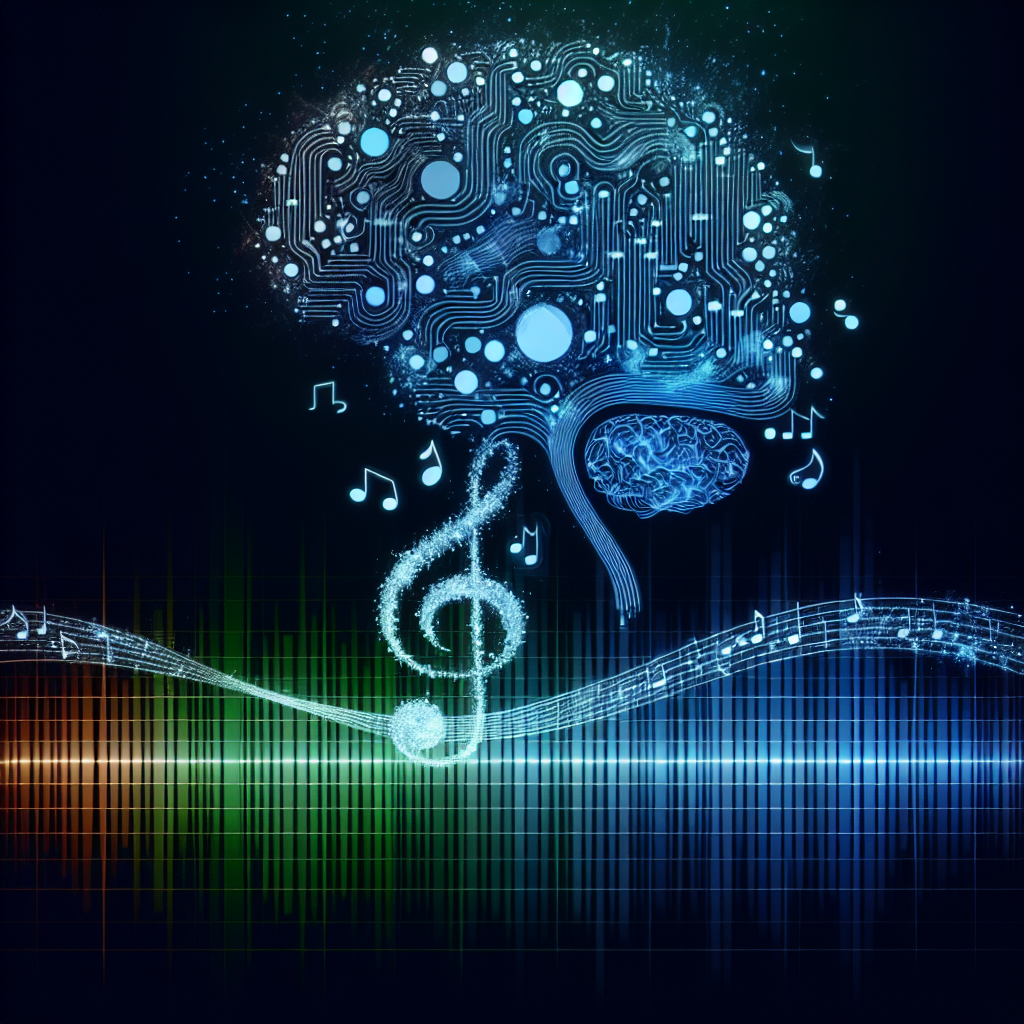The music industry has undergone significant changes in the past few decades, with the rise of digital music distribution and streaming services. As technology continues to evolve, artificial intelligence (AI) is playing an increasingly important role in shaping the future of music distribution. From personalized recommendations to content creation, AI is revolutionizing the way we consume and discover music.
AI in Music Recommendation
One of the most significant impacts of AI in the music industry is its ability to provide personalized recommendations to listeners. Streaming services such as Spotify and Apple Music use AI algorithms to analyze user data and preferences, creating custom playlists and suggesting new music based on individual listening habits. This level of personalization has revolutionized the way we discover and consume music, allowing users to explore a vast catalog of songs tailored to their taste.
AI algorithms can also help artists reach a larger audience by recommending their music to listeners who are likely to enjoy it. This targeted approach can help emerging artists gain visibility and connect with new fans, ultimately driving more streams and revenue. Additionally, AI can analyze trends and patterns in music consumption, helping artists and record labels make informed decisions about marketing and promotion strategies.
Content Creation and Production
AI technology is also being used to create and produce music. AI-powered tools such as Amper Music and Jukedeck can generate original compositions and soundtracks based on specific criteria and styles. These tools can help artists and content creators quickly produce music for videos, commercials, and other projects, saving time and resources.
AI can also assist in the production process by automating tasks such as mixing and mastering. Plugins like LANDR and iZotope Ozone use AI algorithms to analyze audio tracks and make adjustments to achieve a professional sound quality. This can be particularly useful for independent artists and producers who may not have access to expensive recording studios or professional engineers.
Copyright Protection and Royalties
AI technology is also being used to address copyright infringement and ensure fair compensation for artists. Platforms like YouTube and SoundCloud use AI algorithms to detect unauthorized use of copyrighted music and issue takedown notices. This helps protect the intellectual property rights of artists and prevents unauthorized distribution of their work.
Additionally, blockchain technology is being used to track and manage royalties in a transparent and secure manner. Platforms like Ujo Music and Mycelia use blockchain to create smart contracts that automatically distribute royalties to artists based on predetermined terms. This can help ensure that artists receive fair compensation for their work and streamline the royalty payment process.
Challenges and Ethical Considerations
While AI offers numerous benefits for the music industry, there are also challenges and ethical considerations to consider. One concern is the potential impact of AI on creativity and originality in music. As AI algorithms become more sophisticated, there is a risk that music may become formulaic and homogenized, leading to a lack of diversity and innovation in the industry.
Another issue is the potential for AI bias in music recommendation algorithms. AI systems are only as good as the data they are trained on, and biases in the data can lead to skewed recommendations and limited diversity in music discovery. It is essential for developers to address bias in AI algorithms and ensure that they reflect a wide range of musical genres and styles.
Furthermore, there are concerns about the impact of AI on jobs in the music industry. As AI technology becomes more prevalent in content creation and production, there is a risk that traditional roles such as musicians, producers, and engineers may be displaced by automated tools. It is crucial for industry stakeholders to consider the implications of AI on employment and work to create opportunities for collaboration between humans and AI systems.
FAQs
Q: How does AI personalize music recommendations?
A: AI algorithms analyze user data such as listening habits, preferences, and behavior to create personalized playlists and suggest new music based on individual taste.
Q: Can AI create original music compositions?
A: Yes, AI-powered tools such as Amper Music and Jukedeck can generate original compositions and soundtracks based on specific criteria and styles.
Q: How does AI help with copyright protection?
A: AI algorithms can detect unauthorized use of copyrighted music on platforms like YouTube and SoundCloud, helping to protect the intellectual property rights of artists.
Q: What are some ethical considerations related to AI in the music industry?
A: Ethical considerations include the potential impact of AI on creativity and originality, bias in music recommendation algorithms, and the impact of AI on jobs in the industry.
In conclusion, AI is transforming the music industry in numerous ways, from personalized recommendations to content creation and copyright protection. While there are challenges and ethical considerations to address, AI has the potential to revolutionize how we consume, create, and distribute music in the future. By leveraging the power of AI technology responsibly, the music industry can continue to innovate and thrive in the digital age.

